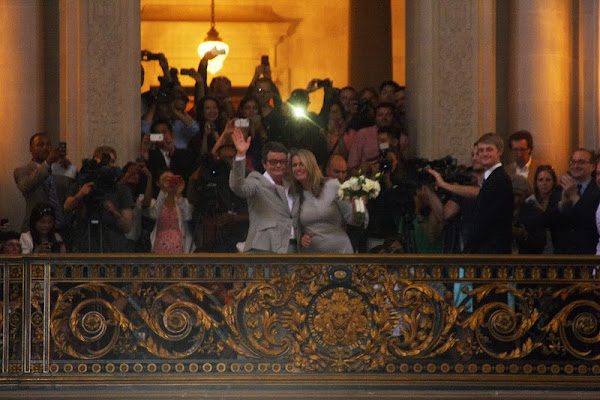
By Anne Twomey, University of Sydney
This week, the High Court will begin hearing the Commonwealth’s challenge to the ACT’s Marriage Equality (Same Sex) Act 2013. But don’t expect lofty rhetoric about equality; the case is really about the inconsistency of laws, not human rights.
In addition to the Commonwealth and the ACT, Australian Marriage Equality (AME) has also applied to be heard in the proceedings. Interestingly, no state has decided to intervene.
Commonwealth arguments
The Commonwealth’s submissions show that it will argue that the Commonwealth parliament has the power to legislate in relation to all forms of marriage.
While it recognises that the full scope of the marriage power in the Constitution has not yet been determined, it argues that:
…the better view is that the constitutional concept of “marriage” includes a marriage between members of the same sex.
However, the Commonwealth argues that its Marriage Act 1961 was intended to cover the entire field of marriage in Australia to the exclusion of any state or territory laws on the subject, and that the ACT law is therefore invalid for trespassing into this field. The Commonwealth contends that:
…it is not open under the law of Australia for any other legislature to purport to clothe with the legal status of marriage (or a form of marriage) a union of persons, whether mimicking or modifying any of [the] essential requirements of marriage.
The Commonwealth’s submissions also assert that the Marriage Act prevents a state or territory from conferring the legal status of marriage or a form of marriage on a union of people that would not be valid under the Commonwealth law. This may be because one of the parties is under age, or lacks capacity, or is already married, or the marriage is to expire after a fixed period, or the parties are closely related or of the same sex.
While it accepts that a state or territory can confer rights on couples, including same-sex couples, “as if they were married”, it contends that this still amounts to recognition that they are not legally “married”.
ACT arguments
The ACT, on the other hand, contends that the Commonwealth’s Marriage Act deals only with the legal status of opposite-sex couples and that it does not prohibit or exclude laws conferring the status of marriage on others, including same-sex couples, or a status that is intended to equate to marriage.
In 2004, the Commonwealth passed the Marriage Amendment Act 2004, which defined marriage as the union of a man and a woman to the exclusion of all others, voluntarily entered into for life. One of the ACT’s arguments is that this law narrowed the field of the Commonwealth’s Marriage Act, opening up the field of same-sex marriage for the states and territories to legislate within.
The issue is one of intention. If one looks to the extrinsic materials, the explanatory memorandum to the 2004 Act stated that the intention was:
…to protect the institution of marriage by ensuring that marriage means a union of a man and a woman and that same-sex relationships cannot be equated with marriage.
The ACT argues, however, that this intention was not made out in the provisions of the Act. While it may have prohibited recognition of overseas same-sex marriages as “marriages” in Australia, it did not expressly prohibit same-sex marriages under the law of other jurisdictions in Australia.
Australian Marriage Equality arguments
The AME’s submissions argue that the status conferred by the ACT Act is different from marriage. They contend that the mere use of the word “marriage” does not indicate that the status is the same. They point to the terms “de facto marriage” and “common law marriage”, which really mean that the relationship is not a marriage.
They argue that the preceding words – “de facto”, “common law” or “same-sex” – “serve to distinguish the status from marriage”. They conclude that as the ACT is legislating about something different from marriage, it is not inconsistent with the Commonwealth’s Act.
What makes Canberra different
The ACT submissions primarily hang on a unique technicality. Its laws are subject to a differently worded inconsistency provision than that which applies to the states or other territories.
Section 28 of the ACT (Self-Government) Act 1988 states that a provision of a territory law has no effect to the extent that it is inconsistent with a Commonwealth law, but that the territory provision shall be taken to be consistent with the Commonwealth law:
…to the extent that it is capable of operating concurrently with that law.
The ACT claims that this means territory laws can operate concurrently with Commonwealth laws as long as there is no direct inconsistency. While state laws will also be invalid if they intrude into a field that the Commonwealth law intends to cover completely and exhaustively, it is argued that this does not apply to ACT laws.
The effect, according to the ACT, is that its Marriage Equality (Same Sex) Act can operate fully in parallel with the Commonwealth’s Marriage Act without any direct inconsistency arising, because the institution of same-sex marriage is different from that of marriage under the Marriage Act.
The issue about the application of the ACT’s inconsistency provision is the dark horse in this case. There is very little authority on the subject and surprisingly, given the significance of this distinction, there seems to be no discussion of the intent behind it in either parliament or the numerous reports that preceded self-government.
This leads to interesting speculative conclusions. Perhaps it was a drafting error or was intended to be cancelled out by the Commonwealth’s disallowance provision. Alternatively, it might simply mean that ACT laws should be read down to avoid inconsistency with Commonwealth laws so that they can operate concurrently.
If the ACT’s Marriage Equality (Same Sex) Act is upheld solely on the basis of this different inconsistency provision, it would mean that same-sex marriage in Australia would only be available and valid in the ACT. Equivalent laws could not be enacted in any other state or territory.
It would not give rise to “marriage equality”, but rather – as the AME argues – a status that is “not marriage”. A pyrrhic victory perhaps, but no doubt it is simply intended to be a battle in a bigger war.
Anne Twomey receives funding from the ARC and occasionally does consultancy work for governments and inter-governmental bodies.
This article was originally published at The Conversation.
Read the original article.




















